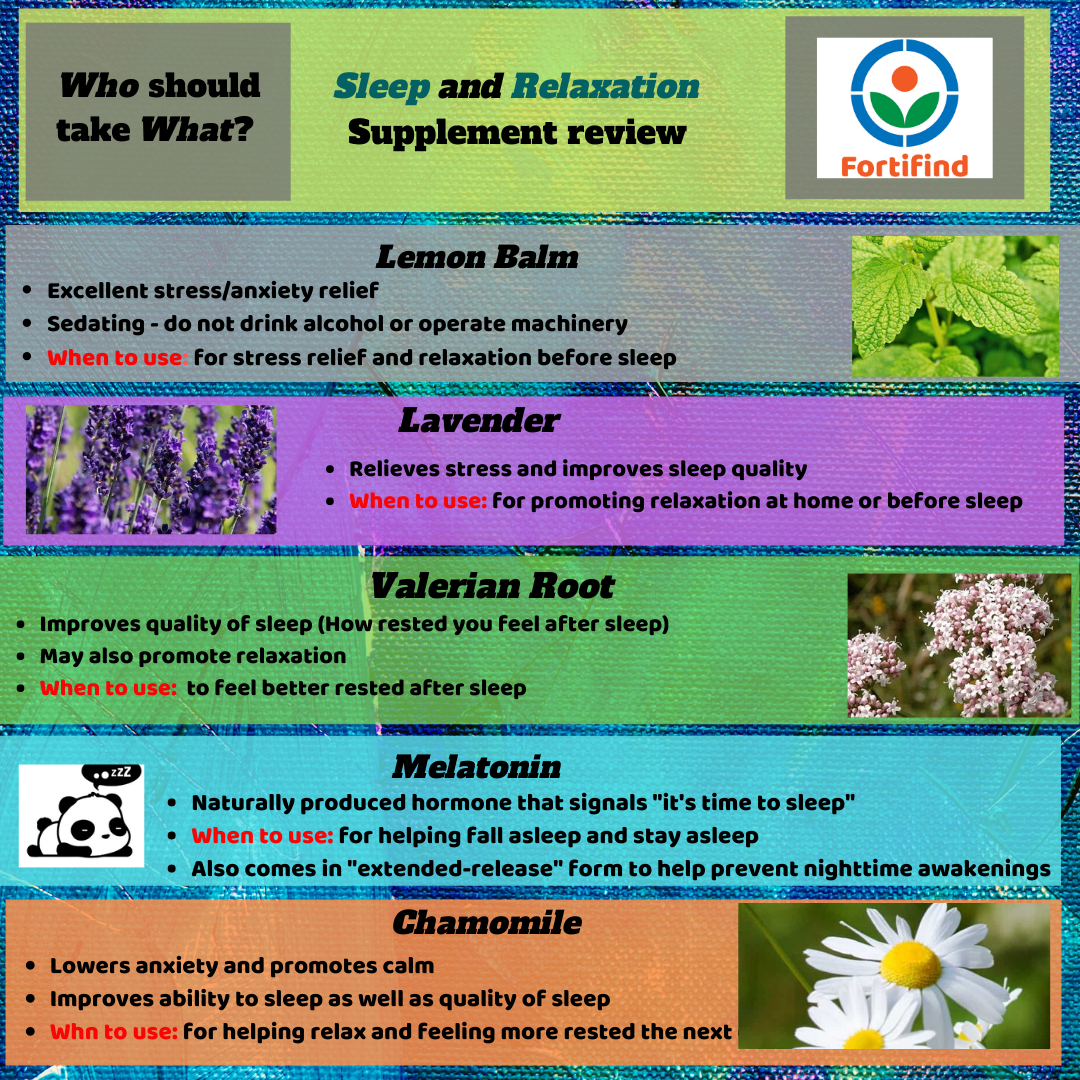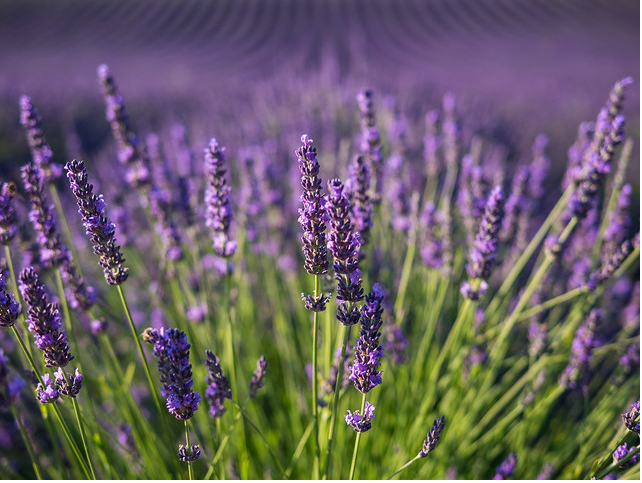Can Supplements Help You Sleep Naturally?
Written by: Glen Greenberg and Clinically Verified by: Matt Marshall, PharmD.

Being an adult means going to work, paying bills and spending an inordinate amount of time talking to your fellow grown-ups about how tired you all are.
That’s because more than a third of adults in the U.S. suffer from sleep deprivation. And this is a global problem. Studies from Sleep Cycle show that there is no country in which citizens average 8 hours of sleep a day.
And there are consequences. Sleep deprivation causes both mental and physical fatigue affecting the overall health of individuals. No wonder the world’s a mess; everyone is cranky.
The reasons why the average adult is sleep deprived are many and diverse – ranging from poor sleep quality to inability to fall asleep in the first place.
Indeed, sleep issues often require a thorough evaluation to completely solve, however, fear not – as there are several evidence-backed supplements that can help in the meantime.
Take a look at the graphic below to help guide you as we take a look at each supplement in detail:

Melatonin:
What is it: Melatonin is a naturally produced hormone which induces sleep and regulates the sleep-wake cycle. [1] Melatonin supplements are available over-the-counter to those who are having no luck counting sheep.
As with most supplements, the effects vary from person to person. But melatonin will help you drop off quicker and sleep more soundly. People who tend to wake up a lot throughout the night may want to try an extended-release tablet.
How to take it: Dosages of melatonin range from 0.3 to 10 mg. [2] Start with the lowest effective dose, and keep usage to under two weeks.
Melatonin works well for bouts of sleeplessness, but isn’t as effective long-term as your body adjusts to it relatively quickly.
Magnesium:
What is it: Magnesium is an essential mineral important for brain function and heart health along with its effects on sleep. Magnesium controls the production of melatonin in the brain, which we all just learned helps you sleep. [5]
It has also been shown to also relax the mind and body, making it easier to doze off.
How to take it: The recommended dosage of magnesium is 400-420 mg for men and 310-360 mg for women. Be sure to stay within the recommended dosage for this supplement as very large doses of magnesium can cause serious side effects. (Thankfully, spontaneous combustion is not one of them.)

Glycine:
What is it: Glycine is an amino acid that lowers body temperature at bedtime, making it easier to fall asleep. [7] No one wants to slumber in a pool of their own sweat, after all.
Taken right before bed, glycine promotes a quicker dive into delta pattern sleep and that, in turn, will give you a better night’s rest.
How to take it: It is available either in pill or powder form, the latter of which can be diluted in water. Start by taking 3 grams of glycine an hour before sleep. And don’t forget to turn on your fan!
L-Theanine:
What is it: L-Theanine is yet another amino acid that affects the sleep cycle of a person through relaxation. [8]
It is also the main compound found in some relaxing teas, though it’s much easier to get to the effective dosage by taking a capsule than it is by drinking a gallon or so of tea.
How to take it: Just like glycine, it is available in capsule or powder form. Take 200-400 mg one hour before bed to help relax your mind and improve your transition into a deep sleep.
Because of the caffeine content, however; don’t expect a cup of green tea to have the same effect.
Valerian:
What is it: Valerian root is an herbal remedy known for its effects on stress reduction and improving sleep quality. It’s one of the most commonly used sleep-promoting herbal supplements in the U.S. and Europe. [3]
Research on valerian is more anecdotal rather than objective, leaving the scientific community skeptical of its effectiveness. [4]
Regardless, several studies from the Catalan Health Institute have shown promising results for valerian’s ability to boost the quality of sleep.
How to take it: Take 450mg before bedtime. Valerian can be bought as pills, tablets, tinctures and powder for a very affordable price.
Or, if you’re one of those “Do it yourself” types, valerian plants are notoriously easy (and legal) to cultivate, – so the government won’t take it away along with other herbs one may use for relaxation.
Lavender:
What is it: Known for its fragrance and purple flowers, lavender is a plant with a variety of household uses.
The smell of lavender is believed to improve sleep but it has also been shown that oral capsules can help calm the mind down to prepare for sleep – making it useful for those having trouble turning their brain (or social media!) off at bedtime.
In addition to this, it also appears to improve the quality of sleep – meaning you may get more bang for your buck for each hour of sleep attained.
How to take it: Lavender works best as support for people who are suffering from mild insomnia.
When taking lavender orally start with 80 mg an hour before bedtime. You may bring the dose up to 160 mg after two weeks if you don’t notice enough of an effect.
Its essential oil is commonly used in aromatherapy, which can safely calm down hyperactive kids and babies (a parent’s dream, really.) Simply put an oil diffuser into the room you want to promote relaxation in and let the fragrance do the rest. [6]

Chamomile:
What is it: Chamomile tea has been used for treating inflammation, anxiety and sleep disorders for generations.
The active ingredient in chamomile, apigenin, is an antioxidant that decreases anxiety and initiates sleep.
While Chamomile appears to also improve sleep quality, the part that really shines is that it’s incredibly effective for soothing an anxious mind before bed.
How to take it: Just one cup of brewed chamomile should be enough for mild cases of restlessness. But, for all you non-tea drinkers (I’m looking at you, coffee people) chamomile extract can be taken in capsule form.
One dose of 200 mg is a good place to start, but upwards of 1000 mg can be taken until the desired effects are reached.

Lemon Balm:
What is it: Lemon balm is widely available in extract form. It can be used as an aromatherapy, taken orally or brewed into a tea.
Its calming effects are likely due to its ability to increase GABA, which is a calming neurotransmitter in the brain.
Be aware that lemon balm may also cause sedation. Obviously this quality makes it an ideal sleep supplement; just don’t plan to drive or operate any machinery after taking significant amounts of it. [9]
How to take it: Lemon balm is best taken as an oral supplement. Try starting with 300 mg taken an hour before bed. Increase this by 300 mg intervals up to 1200 mg as tolerated until the desired effect is reached. (Which is a good night’s sleep.)
5-HTP:
What is it: 5-HTP is a chemical found naturally in the body that increases the production of the neurotransmitter serotonin.
Serotonin creates a relaxed feeling throughout the body that helps you stay asleep, prevent night terrors and even reduce those midnight snack cravings. While serotonin itself cannot be directly increased through a supplement, 5-HTP can indirectly help your body produce more of it.
Since 5-HTP is known to modulate serotonin in the body, make sure to check with your doctor, pharmacist or psychiatrist if you are taking any prescription medications before you try this supplement. It can pose side effects for those already on drugs for psychological disorders.
How to take it: 5-HTP is available in pill and tablet form. For sleep, start with 300 mg taken one hour before bedtime.
A general note on Supplements: Though the supplements mentioned here are all shown to be safe and possess minimal side effects, some medical conditions and medications may interact in unpredictable ways. Always consult your doctor before taking these supplements.
Sleeping Hygiene: While these supplements certainly can aid in a good night’s sleep, the only true way to get the most out of your eight hours is to practice healthy sleep hygiene.
Outlined below are some non-medication, non-supplement related strategies for maximizing your sleep. While supplements are a safe and healthy option, make sure you are practicing these first BEFORE purchasing any new products.
Remember, the best solution to a problem is often the simplest one.
The most important elements for sleep hygiene require you to:
- Find a place quiet and noise-free
- Make sure it is dark with no light directly falling on you
- Be comfortable
- Find an optimal temperature. While there is no one temperature that everyone will agree on, (to many a couple’s disdain) the general rule of thumb is for it to be just cool enough that you need a blanket.
- Limit caffeine intake (duh).
- Go to bed at roughly the same time every night. This will help normalize your circadian rhythm (aka, sleep-wake cycle) and train your body to prepare itself for sleep.
- Exercise regularly
- Forget the nightcap. Booze may help you to drop off faster but ultimately will cause a more restless night.
To help save you some time, we’ve researched the best brands on the market for the supplements discussed above.
Below you will find the links to each product – feel free to check them out and compare with your own research! We receive a small kickback (about 5%) from Amazon, not the brand, which means that we can not only continue to produce high quality content, but keep our recommendations 100% free of bias as well.
If you would like to receive a list of supplement suggestions tailored to you personally, please consider taking our Supplement Quiz (on the home page). It uses an extremely thorough list of questions for each category to narrow down exactly what could be useful for you.
We strive to make our supplement articles concise, but accurate and true to the scientific evidence that’s available. These articles are reviewed and revised frequently to ensure that we remain up to date, our suggestions stay credible, and that you, our reader, receive only the best and most applicable information available. And because we always show our work – check out the references section below to see which studies we analyzed.
If you have any specific requests for an article you’d like to see me write, email Fortifind@gmail.com and let me know!
References
| [1] | “American Sleep Association,” [Online]. Available: https://www.sleepassociation.org/sleep-treatments/melatonin/. |
| [2] | “PubMed Central,” [Online]. Available: https://www.ncbi.nlm.nih.gov/pmc/articles/PMC4394901/. |
| [3] | “PubMed,” [Online]. Available: https://www.ncbi.nlm.nih.gov/pmc/articles/PMC4394901/. |
| [4] | “PubMed,” [Online]. Available: https://www.ncbi.nlm.nih.gov/pubmed/20347389. |
| [5] | “PubMed,” [Online]. Available: https://www.ncbi.nlm.nih.gov/pubmed/12030424. |
| [6] | “PubMed,” [Online]. Available: https://www.ncbi.nlm.nih.gov/pubmed/16298774. |
| [7] | “PubMed,” [Online]. Available: https://www.ncbi.nlm.nih.gov/pmc/articles/PMC4397399/. |
| [8] | “PubMed,” [Online]. Available: https://www.ncbi.nlm.nih.gov/pubmed/15378679. |
| [9] | “PubMed,” [Online]. Available: https://www.ncbi.nlm.nih.gov/pubmed/21076869. |










